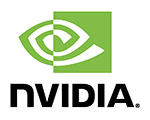Building deep learning applications using TensorFlow to combat schistosomiasis
Who is this presentation for?
- Executives, data scientists, machine learning engineers, and researchers
Level
Description
The World Health Organization (WHO) aims to eliminate schistosomiasis by 2020. However, despite billions of dollars spent on preventive chemotherapy in the form of mass drug administration (MDA) in the past 10 years, the number of people infected with schistosomiasis has remained relatively unchanged. Schistosomiasis remains a challenging public health concern.
There are two caveats in the current MDA approach. First, there is still a limited theoretical understanding of the most cost-effective strategies to direct elimination effort through MDA (i.e., where and when to administer drugs across heterogeneous landscapes). Second, little attention is given to the environmental component of transmission, where freshwater snails serve as intermediate hosts for the parasite worms that cause persistent reinfection. Here is where deep learning technology comes in to help fill these caveats.
Zac Yung-Chun Liu, Andy Chamberlin, Susanne Sokolow, Giulio De Leo, and Ton Ngo explain how to build end-to-end AI-powered computer vision frameworks using TensorFlow to classify images of snail and parasite species and identify transmission hotspots by segmenting the aquatic vegetation associated with snails on satellite and drone imagery for the study area in Senegal, West Africa. Accurate and up-to-date knowledge of areas at higher risk for disease transmission can increase the effectiveness of control interventions targeting snail habitat and/or humans for treatment. This technology is scalable and can provide accurate, high-spatial-resolution information on when and where to target MDA that may further reduce disease burden.
In addition, you’ll understand how they deploy the models as web applications, using TensorFlow.js, which allows easy access and collaboration on data collection and model improvement. This project is interdisciplinary, open-sourced, and established with collaborative efforts, which brings together researchers from disease ecology, AI, and software development. You’ll leave with the guidance and inspiration to help establish AI frameworks to solve similar health and environmental problems.
Prerequisite knowledge
- A basic understanding of machine learning (useful but not required)
What you'll learn
- Understand how AI can help solve public health and environmental problems and why it's better than traditional methods
- See how interdisciplinary teams and open source AI are the keys to be successful in similar projects
- Learn how TensorFlow makes it easy to establish AI frameworks

Zac Yung-Chun Liu
Stanford University
Zac Yung-Chun Liu is a machine learning engineer and data scientist. He specializes in machine learning, artificial intelligence applications, remote sensing data processing, biological data processing, and geospatial analysis. His deep learning works and open source projects involve computer vision, image classification, segmentation, object detection, and natural language processing, related to disease ecology and shark conservation.

Andy Chamberlin
Stanford University
Andy Chamberlain is a project manager in the Theoretical Ecology Lab at Stanford University. He specializes in GIS analysis, drone operations, and machine learning.

Susanne Sokolow
Stanford University | UC Santa Barbara
Susanne Sokolow is a senior research associate at Stanford University and UC Canta Barbara. She’s also the executive director of the newly founded Center for Disease Ecology, Health, and Development at Stanford University and is a cofounder and an executive board member of the Upstream Alliance, an initiative joining partners across the globe in research for schistosomiasis reduction. She studies basic and applied research at the interface of disease ecology, health, and development. Her research program seeks natural solutions to modern health and environmental problems plaguing the developing world.

Giulio De Leo
Stanford University
Giulio De Leo is a theoretical ecologist by formation. He’s interested in investigating factors and processes driving the dynamics of natural and harvested populations and in understanding how to use this knowledge to inform practical management. He’s the scientific director of the newly established Center for Disease Ecology, Health, and the Environment at Stanford.

Ton Ngo
IBM
Ton Ngo is a senior software developer in the IBM Cognitive OpenTech Group at the IBM Silicon Valley Lab. Previously, he was with the IBM Research Lab at Yorktown and Almaden. He’s been active in the open source community for four years and is working on TensorFlow and deep learning. He was a core contributor in OpenStack for Magnum and Heat-Translator, focusing on the networking and storage support for container orchestrator such as Kubernetes. Ton frequently gives talks and programming tutorials on TensorFlow in San Francisco, Seattle, and New York and at OpenStack Summits worldwide. He has published papers on a wide range of subjects.
Presented by
Diamond Sponsor
Elite Sponsors
Gold Sponsor
Supporting Sponsors
Premier Exhibitors
Exhibitors
Innovators
Contact us
confreg@oreilly.com
For conference registration information and customer service
partners@oreilly.com
For more information on community discounts and trade opportunities with O’Reilly conferences
sponsorships@oreilly.com
For information on exhibiting or sponsoring a conference
pr@oreilly.com
For media/analyst press inquires








